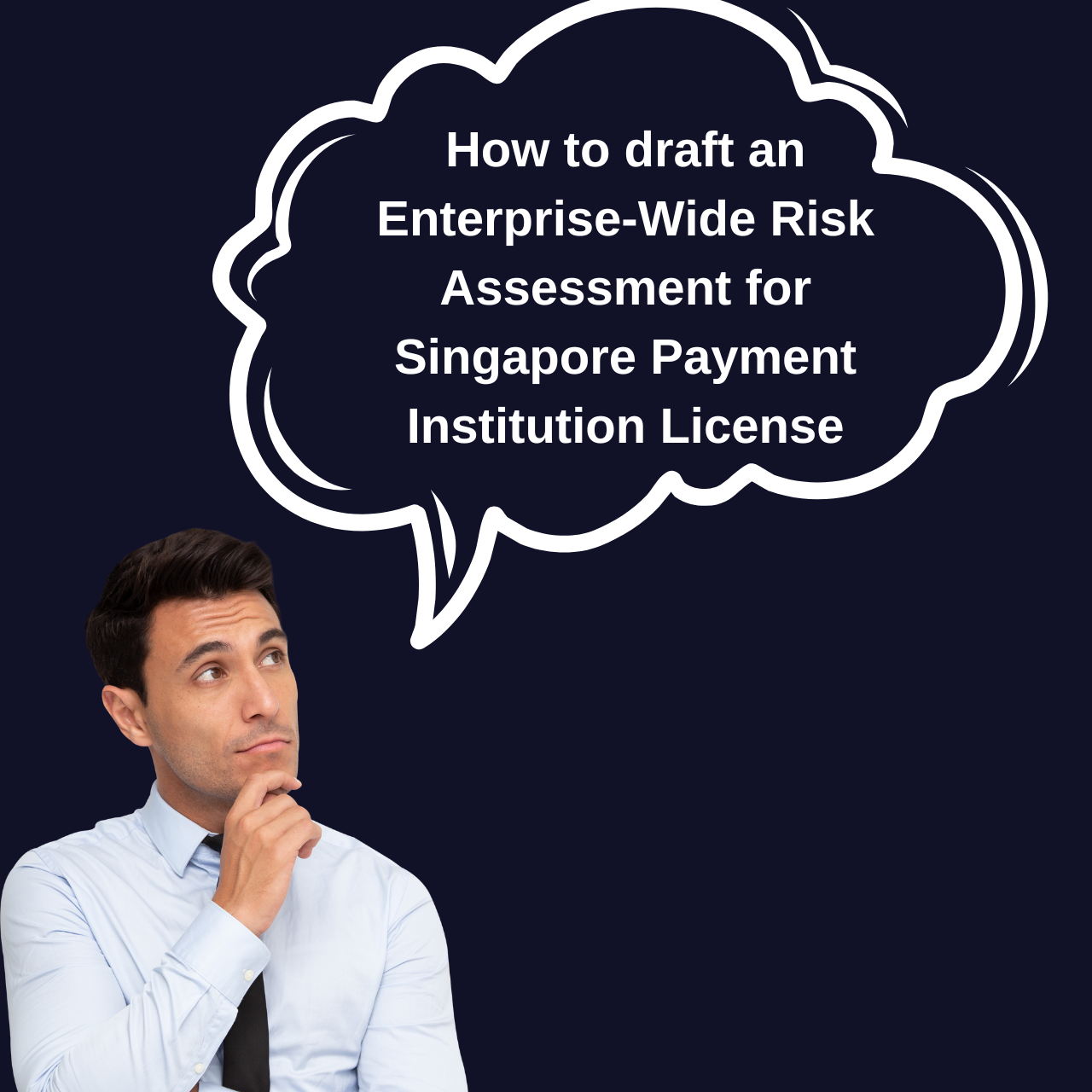MAS introduces the new Singapore Payment Institution License
Businesses are now required to apply Singapore Payment Institution License in order to carry out certain payment services. On 28 January 2020, Monetary Authority of Singapore (MAS) announced the introduction of Singapore Payment Services Act with the aim of enhancing regulatory framework for payment services in Singapore. The Monetary Authority of Singapore (MAS) introduced the new Singapore Payment Institution License as part of the Payment Services Act 2019 (PS Act). The PS Act unifies and streamlines the regulatory requirements for various payment services provided in Singapore, including electronic payments and cryptocurrency dealing and exchange services. The main goal is to promote higher confidence in overall use of electronic payments while protecting the safety of consumers.
There are currently two types of Singapore Payment Institution Licenses: Standard Payment Institution License and Major Payment Institution License.
In the past, Singapore companies can conduct Stored Value Facility (SVF) and money remittance businesses while being license exempt. With the new regulations, it is mandatory for payment services businesses to attain the Payment Institution License. Existing Singapore SVF companies or money remittance companies will be able to apply for a one-year grace period from MAS to meet the additional requirements.
Failure to comply with the above will result in the individual being subject to a fine not exceeding SG$125,000 or imprisonment not exceeding 3 years or both.
New guidelines to be issued by Monetary Authority of Singapore
PSNO1: Notice to payment services providers (specified payment services) on prevention of money laundering and countering the financing of
terrorism
PSNO1A: Notice on AML/CFT requirements to facilitate transition of existing stored value facility holders
PSN02: Notice to payment services providers (digital payment token service) on prevention of money laundering and countering the financing of
terrorism
PSN03: Notice on reporting of suspicious activities and incidents of fraud
PSN04: Notice on submission of regulatory returns
PSN04A: Notice on submission of statement of transactions and profit/loss
PSN05: Notice on technology risk management
PSN06: Notice on cyber hygiene
PSN07: Notice on conduct
PSN08: Notice on disclosures and communications
PSN09: Notice on administrative matters
FSG-G01: Guidelines on fit and proper criteria
Business activities allowed
Under the Singapore Payment Services Act, your business is required to secure Payment Institution License in order to provide payment services below. In Singapore, the Standard Payment Institution License is the most common and has fewer mandatory requirements as compared to the Major Payment Institution License.
Payment Institution License
A person must have in force a standard payment institution license to be entitled to carry on a business of —
- providing one of the following payment services:
(i) an account issuance service;
(ii) a domestic money transfer service;
(iii) a cross‑border money transfer service;
(iv) a merchant acquisition service;
(v) an e‑money issuance service;
(vi) a digital payment token service; or
- providing 2 or more of the following payment services:
(i) an account issuance service;
(ii) a domestic money transfer service;
(iii) a cross‑border money transfer service;
(iv) a merchant acquisition service;
(v) an e‑money issuance service;
(vi) a digital payment token service;
(vii) a money‑changing service.
What types of payment services are included in the new Singapore Payment License?
Account issuance service: Payment services that issue payment accounts to users. Some examples include e-wallets or a credit card that is not issued by banks.
Domestic money transfer service: Payment services that allow users to conduct money remittance locally. Some examples include payment gateway services and payment kiosks.
Cross-border money transfer service: Payment services that allow users to conduct international money remittance in and out of Singapore.
Merchant acquisition service: Payment services which allow users to accept and process payments for merchants. Some examples include point-of-sale terminals or online payment gateways.
E-money issuance service: Payment services which allow users to make payments to merchants or transfer funds to other individuals.
Digital payment token services: Payment services which allow users to buy or sell cryptocurrencies. This includes cryptocurrency wallets and cryptocurrency exchanges.
Money-changing service: Payment providers that allow users to physically exchange currency notes. This includes money changers in Singapore.
Types of payment licenses
Standard Payment Institution (SPI) license: This payment license is offered under the Payment Services Act 2019 in Singapore, is tailored for low-risk payment service providers. Eligibility requires a Singapore-incorporated entity, a local office, and adherence to specific criteria. The Monetary Authority of Singapore evaluates each application individually, considering factors like public interest. The SPI license aims to simplify and harmonize payment service regulations in Singapore, featuring a cost-effective license structure with no transaction volume or amount restrictions.
Major Payment Institution (MPI) license: This is available under the Payment Services Act 2019 in Singapore, caters to payment service providers with higher risks. Eligibility requires specific criteria, including Singapore incorporation, a local presence, and meeting other requirements. The MPI license allows companies to conduct various payment services without specific threshold limits, providing flexibility in transactions.
Money-changing license: Entities engaging in money-changing services in Singapore must secure a Money-Changer’s License under the Payment Services Act. Regulated by the Monetary Authority of Singapore (MAS), this license authorizes businesses to buy and sell foreign currency notes. It is a mandatory requirement, alongside the Standard Payment Institution (SPI) and Major Payment Institution (MPI) licenses, subject to MAS eligibility criteria and regulatory standards.
Threshold
The thresholds are set out in section 6(5) of the Payment Services Act. The thresholds for the Standard Payment Institution License are:
- S$3 million monthly transactions for any payment service (other than e-money account issuance and money-changing services).
- S$6 million monthly transactions for two or more payment services (other than e-money account issuance and money-changing services).
- S$5 millions of daily outstanding e-money
Do note that MAS will require applicants to describe the monitoring measures that will be taken to ensure your business does not exceed these thresholds.
Major Payment Institution License
- If your business exceeds the above-mentioned threshold, you will be required to apply for a Major Payment Institution License. By applying for a Major Payment Institution License, your business will be subject to additional requirements. It is mandatory for Major Payment Institutions to maintain a security deposit with the Monetary Authority of Singapore.
- If the monthly average of payment transactions for any one payment service does not exceed S$6 million, the security deposit will be S$100,000. If your business exceeds this threshold, the security deposit will be increased to S$200,000. Applicants can choose to maintain the security deposit as a cash deposit with MAS or as a bank guarantee.
- Holders of Major Payment Institution License are subject to safeguarding of funds. This can take the form of undertaking/ guarantee or trust account.
Mandatory requirements of Singapore Payment Institution License
For both Payment Institution Licenses, you are required to meet the following requirements:
- The application must be submitted by a company registered in Singapore, or a foreign branch registered in Singapore. See this webpage on the steps required to establish a Singapore company within 1 week.
- You are required to have either a local registered office address or a physical office.
- The minimum paid-up capital for the Standard Payment Institution License is S$100,000 deposited in a corporate bank account, while that of the Major Payment Institution License is S$250,000. This is also known as the base capital.
- The company must have either a local registered office address or a physical office.
- Your board of directors should include either:
- At least 1 executive director who is a Singapore Citizen or Singapore Permanent Resident or
- At least 1 non-executive director who is a Singapore Citizen or Singapore Permanent Resident and at least 1 executive director who is a Singapore Employment Pass Holder.
- Appoint external auditor annually to carry out an audit of the transactions in relation to the payment services and submit the audited report to MAS.
- You are also required to prepare an array of corporate documents prior to submitting license application submission. Some of these documents include AML/CFT policies and procedures, technology risk management policies, cyber hygiene procedures and cyber security protocols.
- The applicant for a license must demonstrate to the Monetary Authority of Singapore (MAS) that key personnel (sole proprietor, partners, directors, CEO, shareholders, and employees) and the entity itself are “fit and proper.”
- The entity and its group should have a clean reputation, particularly regarding financial crimes.
- Key personnel must possess sufficient experience in the payment industry.
- Licensees are required to submit periodic regulatory returns related to payment service activities.
- Compliance with cyber hygiene requirements is mandatory.
- Adherence to business conduct requirements outlined in the Payment Services Act, Payment Services Regulations, and the Notice on Business Conduct is essential.
Admission criteria
The admission criteria for a Singapore Payment Institution License, specifically the Standard Payment Institution (SPI) license, include both mandatory and discretionary requirements. Moreover, the validity period of the SPI license is indefinite, and there is no definite timeline for approving each license application, as each application is reviewed individually. Monetary Authority of Singapore (MAS) has stated that they will consider the below criteria while assessing the issuance of the Standard Payment Institution License.
- Fitness and propriety of the controllers and directors.
- Governance structure.
- Qualifications and experience, particularly in operating a payment services business and compliance with regulatory requirements.
- Financial condition and record of accomplishment.
- Business plan and model, including operational readiness.
- Ability to comply with obligations under the PS Act, including compliance, technology risk management and audit arrangements.
- Regulatory status in other jurisdictions, where applicable.
- For applicants with a holding company, commitment to operations in Singapore.
- Whether the public interest will be served by granting a license.
How to apply for Singapore Payment Institution License?
Step 1: Determine the type of license
- You will be required to select the type of license required depending on the business activity. Assess the specific requirements and regulatory considerations for each license to ensure alignment with the scope and scale of your payment-related activities in Singapore. This decision-making process is crucial for compliance and legal authorization in the financial services sector.
Step 2: Prepare the required documents
- Compile essential documentation for the licensing process, including the company’s registration papers, evidence of a local registered office or physical workspace, verification of minimum paid-up capital, and comprehensive information on the board of directors. These documents are crucial for demonstrating your business’s legitimacy, financial stability, and governance structure. Ensuring the availability and accuracy of these records is a fundamental step in meeting the regulatory requirements for obtaining licenses, such as the Standard Payment Institution (SPI) license or Major Payment Institution (MPI) license, in Singapore.
Step 3: Submit the application
- Initiate the license application process by submitting the required documentation through the Monetary Authority of Singapore (MAS) website. Utilize the online platform for a streamlined application experience. If needed, access assistance through the Help section to navigate the submission process effectively. The MAS website serves as the central portal for submitting applications, ensuring a convenient and accessible avenue for entities seeking licenses, such as the Standard Payment Institution (SPI) license or Major Payment Institution (MPI) license, in Singapore.
Step 4: Wait for approval
- The Monetary Authority of Singapore (MAS) does not specify a fixed timeline for license approval. Each application undergoes individual review, and additional supporting documents or information may be requested. Feedback on the license application is provided only after the submission is deemed complete with all required information.
Step 5: Ongoing requirements
- Upon approval of your license, ongoing compliance is essential. This entails fulfilling obligations like submitting regular regulatory returns, adhering to cyber hygiene requirements, and complying with business conduct standards outlined in the Payment Services Act, Payment Services Regulations, and the Notice on Business Conduct. Ensuring continuous adherence to these requirements is crucial for maintaining regulatory compliance in the dynamic landscape of the financial services sector in Singapore.
Tetra Consultants expects to register your Singapore company, open local corporate bank account and secure Standard Payment Institution License within 4 months. Contact us to find out more about how to secure Singapore Standard Payment Institution License.


































































































































































































































































































































































































































































2 comments
Ahmed Rasooli
October 9, 2020 at 8:12 pm
Dear Sir/Madam,
We are a UK based company (Small Payment Institution) regulated and authorised by FCA. We are very keen to register and open a business as Major Payment Institution. I would be very grateful if you could kindly provide us with more information on how you can assist us in this matter.
Sincerely yours
Ahmed Rasooli
Thida Myint Sein
December 8, 2020 at 10:34 am
Hi ,
We would like to apply the license for Payment Service Provider ( Cross-border money transfer service ) . And we already have the registered company in Singapore . You just need to prepare the required documents and give us the guideline how to apply .
How much is your service fee ?